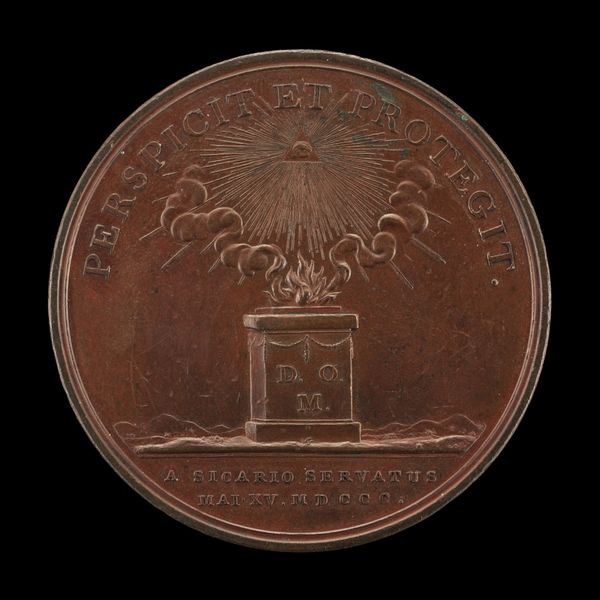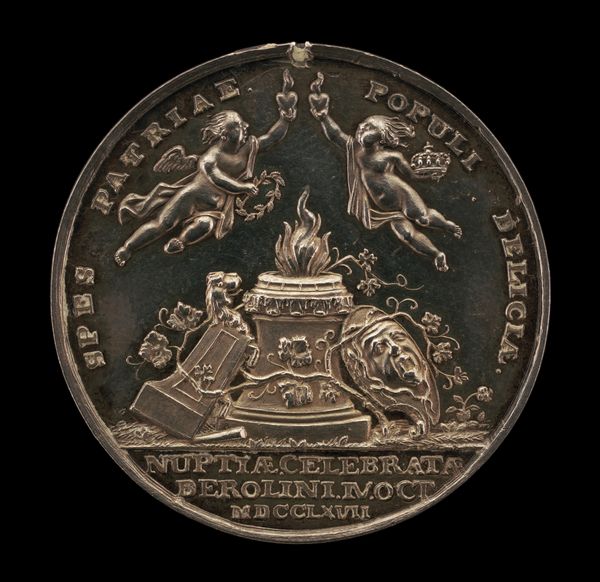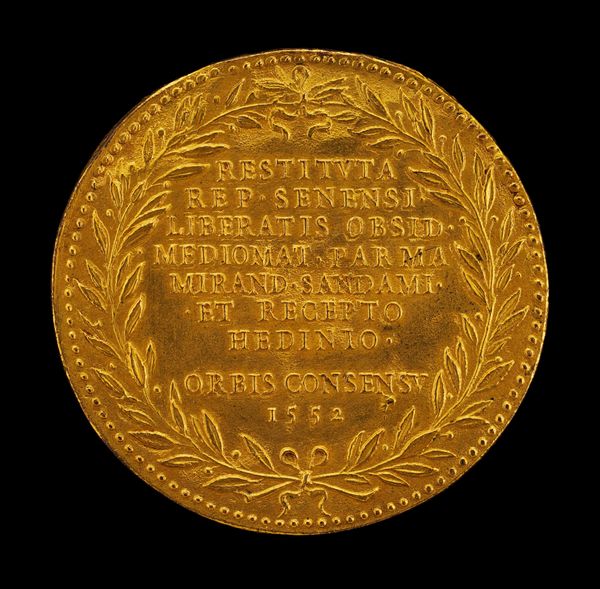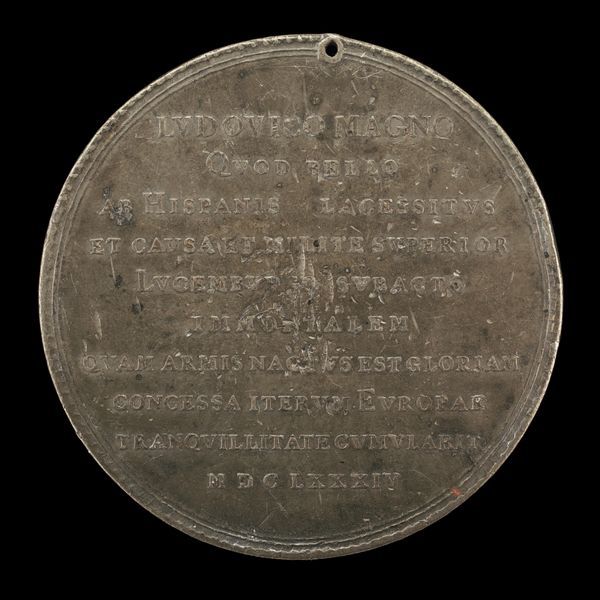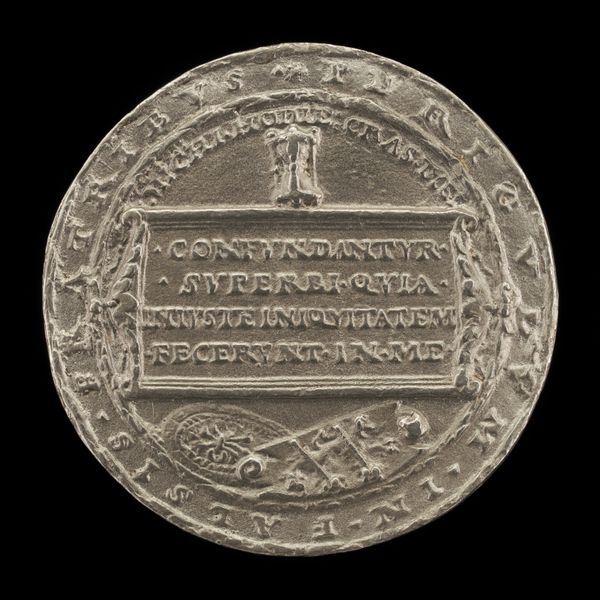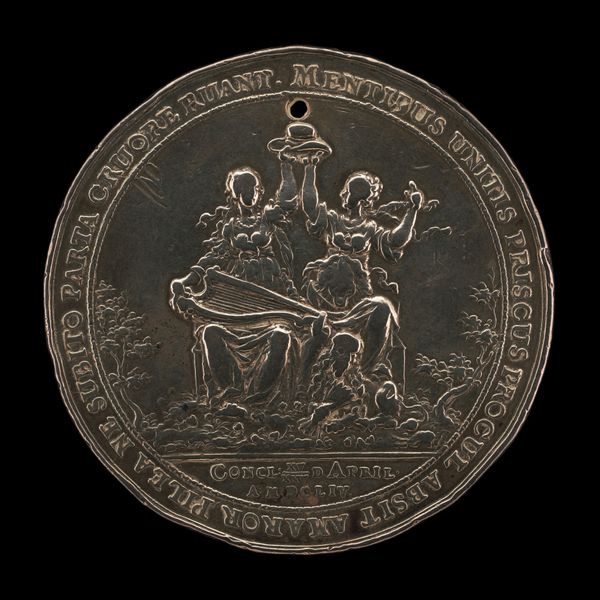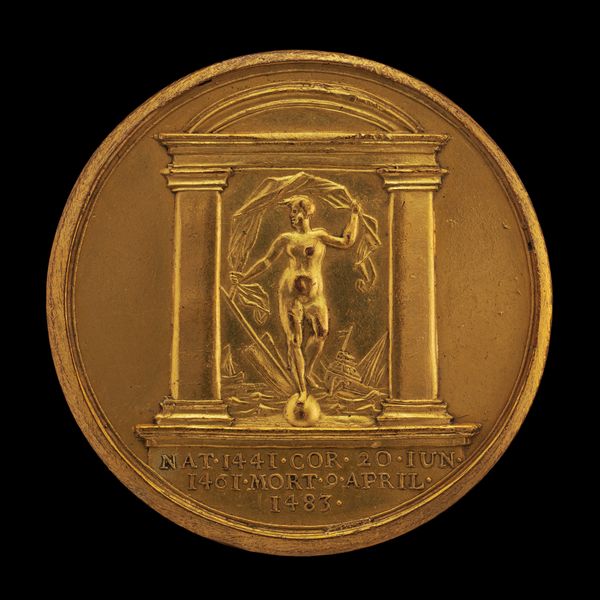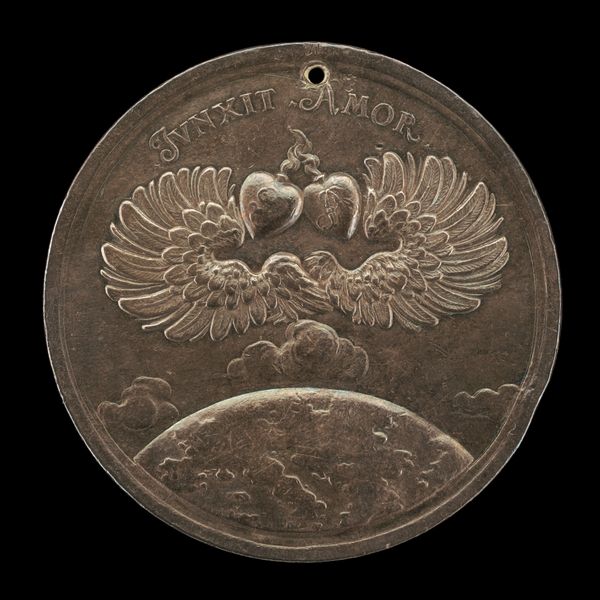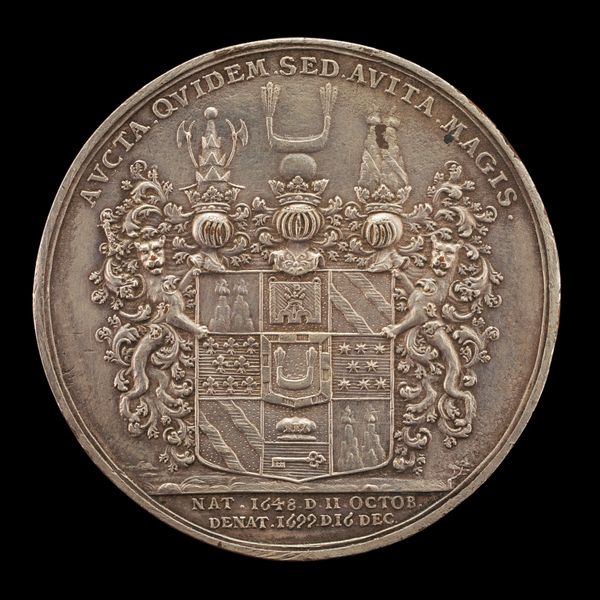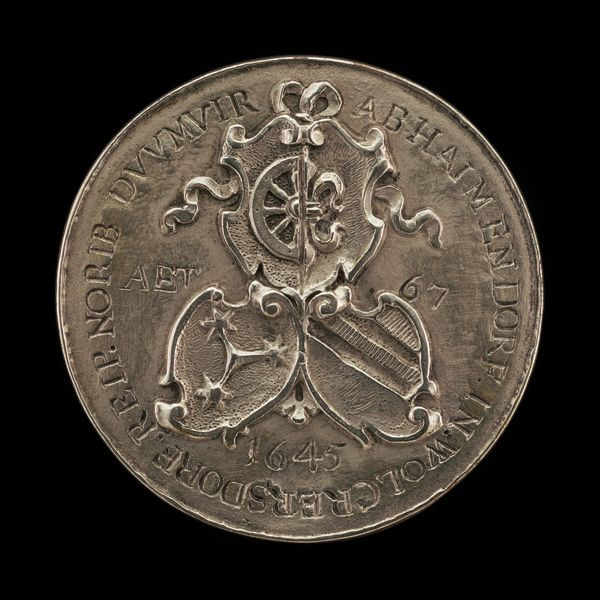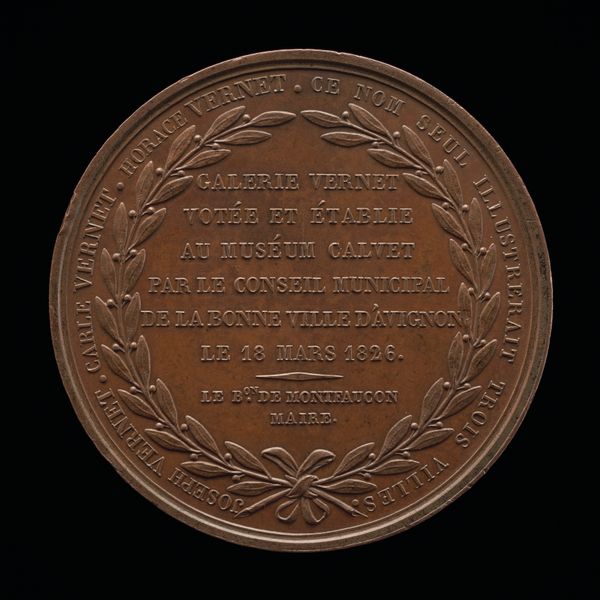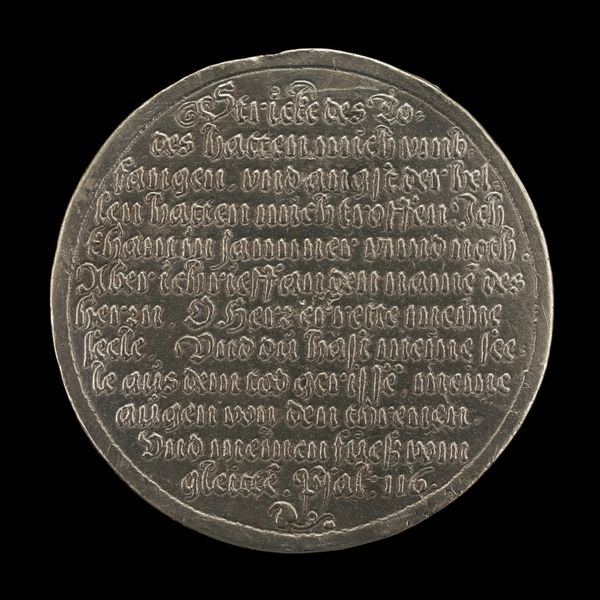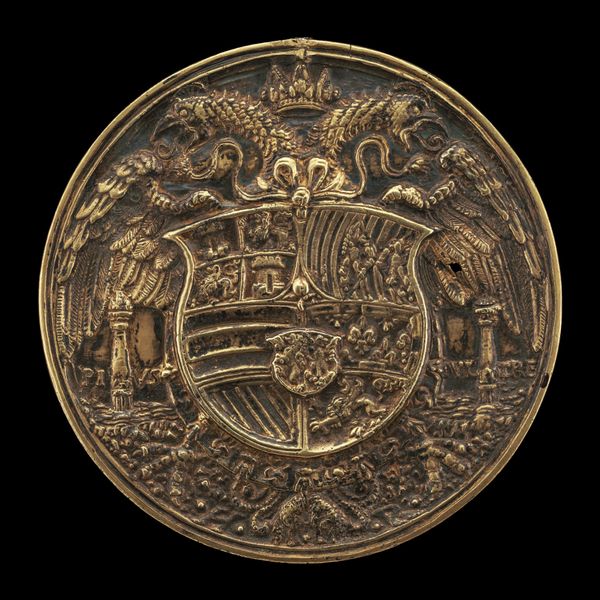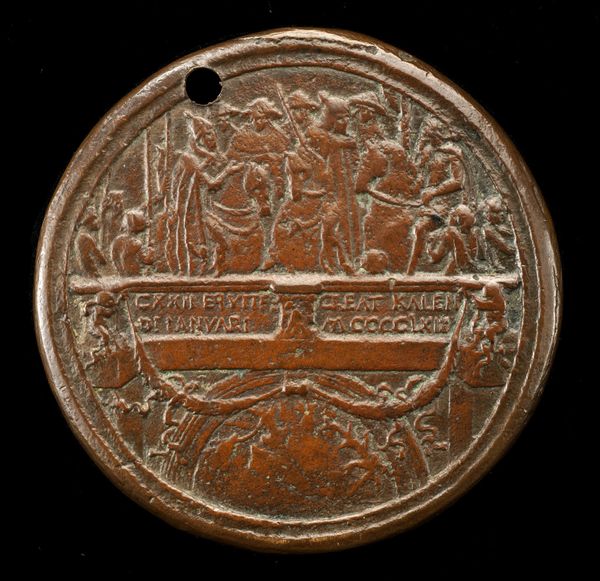![Justice [reverse] by Daniel Sailer](/_next/image?url=https%3A%2F%2Fd2w8kbdekdi1gv.cloudfront.net%2FeyJidWNrZXQiOiAiYXJ0ZXJhLWltYWdlcy1idWNrZXQiLCAia2V5IjogImFydHdvcmtzL2JjOGI4ZjA0LTY1OWYtNDM3ZC04NTFkLTdiZDU5MDdkZjAxNC9iYzhiOGYwNC02NTlmLTQzN2QtODUxZC03YmQ1OTA3ZGYwMTRfZnVsbC5qcGciLCAiZWRpdHMiOiB7InJlc2l6ZSI6IHsid2lkdGgiOiAxOTIwLCAiaGVpZ2h0IjogMTkyMCwgImZpdCI6ICJpbnNpZGUifX19&w=3840&q=75)
metal, relief, sculpture, engraving
#
natural stone pattern
#
allegory
#
baroque
#
metal
#
stone
#
sculpture
#
detailed texture
#
relief
#
classical-realism
#
sculptural image
#
figuration
#
unrealistic statue
#
carved into stone
#
sculpture
#
history-painting
#
golden font
#
engraving
#
columned text
#
statue
Dimensions: overall (diameter): 4.5 cm (1 3/4 in.) gross weight: 20.57 gr (0.045 lb.) axis: 12:00
Copyright: National Gallery of Art: CC0 1.0
Editor: Here we have “Justice [reverse]”, a metal relief from around 1625. The intricate detail is really striking, especially in the swirling baroque elements surrounding the text. It feels incredibly formal and almost weighty. What do you see in this piece? Curator: Its allegorical depiction of Justice is fascinating. Observe the figure, blindfolded, balanced scales in one hand, a sword in the other, enthroned. How does the engraver use the medium, metal, to articulate light and shadow, depth and volume? Consider also the textual components. Editor: Yes, the lettering is very stylized! The combination of image and text makes it feel very symbolic. How does the composition lead the eye? Curator: Precisely. The composition moves upward, from the ornate swirls at the base to the figure of Justice at the top, with the weight of the text in the center acting as an anchor. The use of line – the engraver's cuts into the metal – define form and texture. How would you assess the formal qualities of this piece? What do they communicate? Editor: The lines are crisp, very precise, creating a sense of order, which is maybe reflecting Justice itself, but also contributing to that feeling of weightiness. The material reinforces that idea too. It's thought-provoking to see how those choices affect the piece. Curator: Indeed. Examining the intrinsic qualities such as line, form, and the employment of metal provides profound insights.
Comments
No comments
Be the first to comment and join the conversation on the ultimate creative platform.
